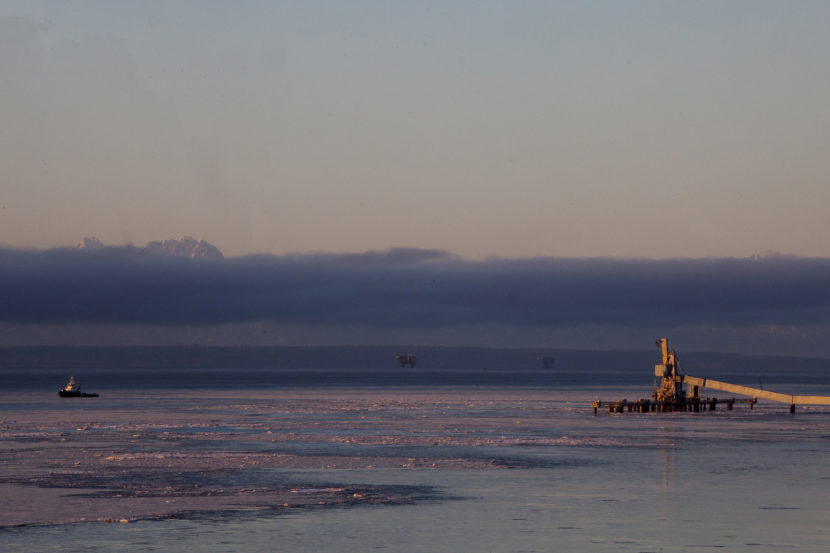
The federal agency charged with regulating pipelines and hazardous materials is looking into another natural gas leak on a Hilcorp platform in Cook Inlet.
Patricia Klinger, a spokesperson for the the Pipeline and Hazardous Materials Safety Administration, wrote in an email that the agency is aware of the leak and investigating it.
It is the third report this year of equipment failure on Hilcorp-owned infrastructure in the inlet, including another ongoing gas leak and an oil leak.
In an emailed statement, company spokesperson Lori Nelson said Hilcorp started an audit of its pipelines in the region in response to its other gas leak. During an inspection, the company discovered that a pipeline on its Steelhead Platform was measuring more gas leaving the platform than what was arriving on shore.
Nelson called this a “metering discrepancy,” but she said the company took the line out of service on April 1, as a precaution. Nelson wrote that the company flew over the area several times, but did not find evidence of a gas leak.
The company was also responding to an oil leak from its nearby Anna platform on April 1 and has shut down two other oil platforms in Cook Inlet to deal with a natural gas leak that has been visibly bubbling to the surface of Cook Inlet since February. Icy and winter weather conditions have complicated repair of both lines.
The line from the Steelhead platform has been emptied of natural gas and filled with seawater since April 3.
The state agencies involved in the other spills in Cook Inlet acknowledged that they are aware of the situation on the Steelhead Platform, but would not comment on record about the situation.
Lois Epstein is an engineer and the Arctic Program Director for the Wilderness Society. She joined calls from other environmental groups in Cook Inlet for an audit of Hilcorp’s aging infrastructure.
“They are very open about their business plan, which is to take over old fields and make them profitable for the company,” Epstein said. “We need to see whether they’re cutting corners. We need to ask a lot of hard questions about their operations.”
Epstein said the company should not be allowed to expand its operations in Alaska without addressing concerns about its safety record.
Rashah McChesney is a photojournalist turned radio journalist who has been telling stories in Alaska since 2012. Before joining Alaska's Energy Desk , she worked at Kenai's Peninsula Clarion and the Juneau bureau of the Associated Press. She is a graduate of Iowa State University's Greenlee Journalism School and has worked in public television, newspapers and now radio, all in the quest to become the Swiss Army knife of storytellers.




